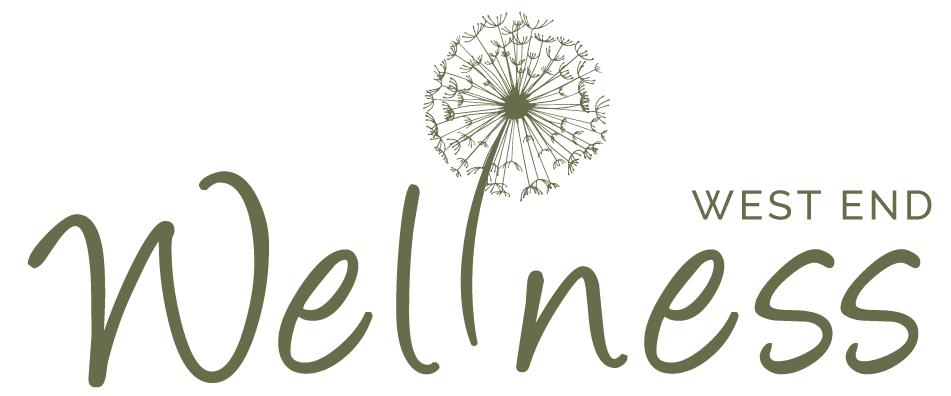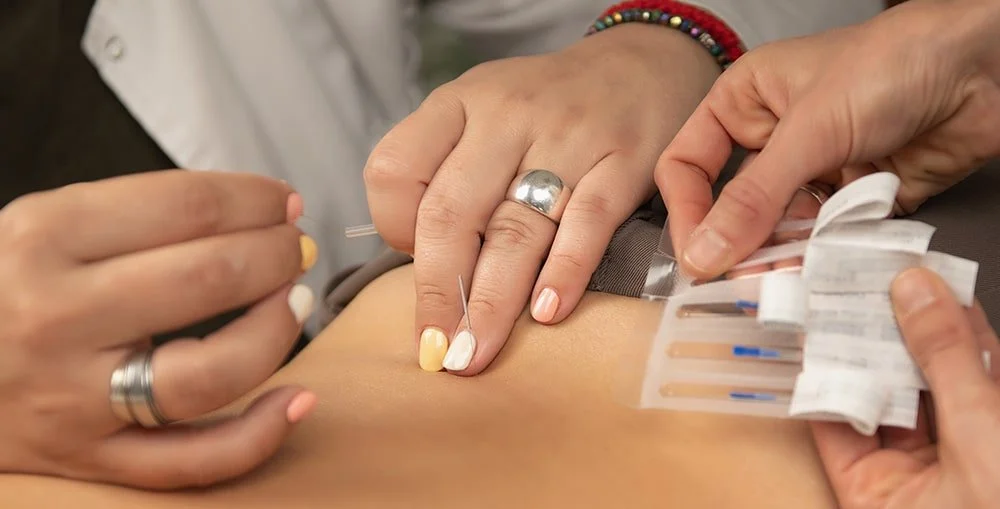How Acupuncture Enhances Fertility: Benefits & Research
Table of Contents Show
Quick Summary
This article explores how acupuncture may help fertility. We discuss the principles of acupuncture in reproductive health, its potential benefits for both natural conception and assisted reproductive technologies, and what to expect during treatment.
We also cover complementary lifestyle factors, the future of fertility acupuncture, and guidance on choosing a qualified practitioner. While scientific evidence is mixed, many find acupuncture beneficial for stress reduction and overall well-being during their fertility journey.
Always consult with healthcare professionals when considering acupuncture as part of your fertility treatment plan.
Acupuncture for fertility has gained significant attention in recent years.
As couples face challenges in conceiving, many turn to this ancient practice in hopes of boosting their chances of having a baby.
But how does acupuncture help fertility?
This question is at the heart of ongoing research and growing interest among those struggling with infertility.
Infertility affects approximately 15% of couples worldwide, according to recent studies. It's a complex issue that can stem from various factors in both men and women. As traditional medical treatments sometimes fall short, more people are exploring complementary approaches like Fertility Acupuncture in Vancouver.
Acupuncture, a key component of Traditional Chinese Medicine, involves the insertion of thin needles at specific points on the body.
Proponents suggest it may help regulate hormones, improve blood flow to reproductive organs, and reduce stress—all crucial factors in fertility.
This article examines the relationship between acupuncture and fertility, backed by scientific research and clinical experiences. We'll look at how acupuncture might benefit those trying to conceive naturally or undergoing assisted reproductive technologies like IVF.
Whether you're just starting your fertility journey or exploring additional options, understanding the potential role of acupuncture in fertility treatment is crucial.
Let's examine the evidence and insights on how acupuncture may improve fertility outcomes.
This article explores the unique benefits and differences between acupuncture and massage therapy, helping you determine which treatment best suits your needs.
Understanding Fertility and Its Challenges
Infertility is defined as the inability to conceive after one year of regular, unprotected sexual intercourse.
This condition affects a significant portion of couples worldwide, with various factors contributing to fertility challenges in both men and women.
For women, common causes of infertility include:
Ovulation disorders
Fallopian tube damage or blockage
Endometriosis
Uterine or cervical abnormalities
Primary ovarian insufficiency
Male factor infertility often results from:
Abnormal sperm production or function
Problems with sperm delivery
Overexposure to certain environmental factors
Hormonal imbalances
In about 20% of cases, infertility is due to a combination of factors in both partners or the cause remains unexplained.
The impact of infertility extends beyond the physical realm. A study published in the Journal of Psychosomatic Obstetrics & Gynaecology found that individuals experiencing infertility often report psychological symptoms comparable to those with other serious medical conditions.
This underscores the emotional toll of fertility challenges and the need for comprehensive support during treatment.
Modern fertility treatments, such as in vitro fertilization (IVF), have improved outcomes for many couples. However, success rates vary. According to the Society for Assisted Reproductive Technology, live birth rates for IVF range from 54% for women under 35 to 4% for women over 42, using their own eggs.
Given these challenges, many individuals and couples are exploring complementary approaches to enhance their fertility.
Acupuncture has emerged as a popular option, with proponents suggesting it may help address some of the underlying factors affecting fertility.
Acupuncture: An Ancient Practice for Modern Fertility
Acupuncture, a cornerstone of Traditional Chinese Medicine (TCM), has been practiced for over 3,000 years. This ancient healing art is based on the concept of Qi (pronounced "chee"), representing the body's vital energy.
According to TCM principles, health issues, including infertility, arise when the flow of Qi is disrupted or imbalanced.
In the context of fertility, acupuncturists view reproductive challenges as a result of disrupted vital balance and blockages in the Qi energy and blood circulation flow.
These imbalances are categorized into three main syndromes:
Deficiency syndrome: This disrupts sexual and reproductive functions in both men and women.
Stagnancy syndrome: This restricts the free flow of energy and blood to the reproductive organs.
Heat syndrome: Associated with inflammation processes that can impact sperm quality and cause gynecological infections.
Acupuncture treatment involves the insertion of thin, sterile needles into specific points on the body known as acupoints. These points are believed to connect with specific organs and energy pathways.
By stimulating these points, acupuncturists aim to restore balance and promote the free flow of Qi throughout the body.
In recent years, acupuncture has gained recognition in Western medicine as a complementary treatment for various conditions, including fertility issues.
While the exact mechanisms are still being studied, research suggests that acupuncture may influence fertility by:
Regulating hormone levels
Increasing blood flow to reproductive organs
Reducing stress and promoting relaxation
Supporting the function of the hypothalamic-pituitary-ovarian axis
It's important to note that while many patients report positive experiences with acupuncture for fertility, scientific evidence of its effectiveness remains mixed.
Some studies show promising results, particularly when acupuncture is used in conjunction with assisted reproductive technologies like IVF, while others find no significant difference in outcomes.
Despite the varying results in clinical studies, many fertility specialists recognize the potential benefits of acupuncture, particularly in stress reduction and overall well-being, which can be crucial factors in fertility.
As research continues, acupuncture remains a popular complementary approach for individuals and couples on their fertility journey.
What to Expect During Fertility Acupuncture Treatment
When you visit an acupuncturist for fertility treatment, your experience will typically include:
Initial Consultation: Your practitioner will review your medical history, including any fertility challenges you've faced. They may ask about your menstrual cycle, lifestyle, and any Western medical treatments you're undergoing.
Diagnosis: Using Traditional Chinese Medicine principles, the acupuncturist will make a diagnosis. This may involve examining your tongue and feeling your pulse.
Treatment Plan: Based on the diagnosis, a personalized treatment plan will be created. This usually involves weekly sessions over several months.
Acupuncture Session: During the session, thin needles will be inserted at specific points on your body. Common points for fertility treatment include those on the lower abdomen, legs, and back. The needles typically remain in place for 20-30 minutes.
Additional Therapies: Your practitioner may recommend complementary therapies such as herbal medicine, dietary changes, or stress-reduction techniques.
It's important to note that acupuncture is generally painless, though you may feel a slight sensation when the needles are inserted. Many patients find the treatments relaxing and report improved overall well-being.
Complementary Lifestyle Factors
While acupuncture can be beneficial, it's most effective when combined with other healthy lifestyle practices:
Nutrition: A balanced diet rich in fruits, vegetables, whole grains, and lean proteins can support reproductive health. Some studies suggest that a Mediterranean-style diet may improve fertility outcomes.
Stress Management: Chronic stress can negatively impact fertility. Techniques such as meditation, yoga, or regular exercise can help manage stress levels.
Sleep: Adequate sleep is crucial for hormonal balance. Aim for 7-9 hours of quality sleep each night.
Environmental Factors: Minimize exposure to toxins by choosing organic foods when possible and using natural cleaning products.
Supplements: Consult with your healthcare provider about supplements that may support fertility, such as folic acid, vitamin D, and omega-3 fatty acids.
Acupuncture can complement these lifestyle factors by potentially reducing stress, improving sleep quality, and supporting overall well-being.
The Future of Acupuncture in Fertility Treatment
As interest in integrative medicine grows, research into acupuncture's role in fertility treatment continues to evolve:
-
Researchers are working to establish standardized acupuncture protocols for fertility treatment, which could lead to more consistent results across studies.
-
Ongoing research is investigating the physiological mechanisms by which acupuncture may influence fertility, potentially leading to more targeted treatments.
-
There's growing interest in how acupuncture can be optimally integrated with assisted reproductive technologies (ART) like IVF to improve success rates.
-
As our understanding of genetics and individual health factors improves, there's potential for more personalized acupuncture treatments tailored to each patient's unique needs.
-
Some practitioners are exploring the use of technology, such as electro-acupuncture or laser acupuncture, which may offer additional benefits.
Choosing an Acupuncturist for Fertility Treatment
Selecting the right acupuncturist is crucial when seeking treatment for fertility issues. Here are key factors to consider:
-
Look for a licensed acupuncturist (L.Ac.) who has completed formal training from an accredited institution.
Check if they have additional certifications in fertility acupuncture or reproductive health.
-
Seek practitioners with specific experience in treating fertility issues.
Ask about their success rates and how many fertility patients they've treated.
-
Choose an acupuncturist who is willing to work in conjunction with your reproductive endocrinologist or OB/GYN.
They should be familiar with common fertility treatments like IVF and IUI.
-
Inquire about their treatment philosophy and protocol for fertility patients.
Ask how they tailor treatments to individual needs.
-
The acupuncturist should be able to explain their approach clearly and answer your questions thoroughly.
They should be open to discussing treatment outcomes and managing your expectations.
-
Visit the clinic to ensure it's clean, professional, and makes you feel comfortable.
-
Check if the acupuncturist accepts your health insurance or offers direct billing payment plans.
Understand the full costs involved, including any herbs or supplements they might recommend.
-
Look for reviews from other fertility patients.
Ask if they can provide references from past clients (respecting privacy laws, of course).
-
Ensure the acupuncturist stays up-to-date with the latest research and techniques in fertility acupuncture.
-
Trust your instincts. You should feel comfortable and confident with your chosen practitioner.
Questions to Ask Potential Acupuncturists:
What is your experience with fertility acupuncture?
How do you typically work with patients undergoing fertility treatments?
What is your approach to male factor infertility?
How many sessions do you recommend, and what is the expected timeline?
Do you provide any additional services or recommendations beyond acupuncture?
Conclusion
Acupuncture offers a holistic approach to fertility treatment, addressing not just physical symptoms but also emotional well-being.
While scientific evidence remains mixed, many individuals find acupuncture beneficial as part of their fertility journey.
At West End Wellness, we're committed to providing comprehensive, integrative care for those facing fertility challenges. We believe in combining the best of traditional wisdom with modern medical knowledge to support our patients' path to parenthood.
If you're considering acupuncture as part of your fertility treatment, it's important to consult with both your reproductive specialist and a qualified acupuncturist.
Together, they can help you develop a personalized plan that addresses your unique needs and goals.
Remember, every fertility journey is unique.
Acupuncture may be one tool in your toolkit, working alongside other treatments and lifestyle changes to support your reproductive health and overall well-being.
If you have any further doubts or questions regarding this subject or another treatment, contact one of our experienced Acupuncturists or Registered Massage Therapists here at West End Wellness Clinic. You can either give us a call or make an appointment.
Disclaimer: Please remember this article is for informational purposes only and should not replace professional medical advice. Please consult a healthcare provider or someone with the correct qualifications before starting any new exercise or treatment program.





